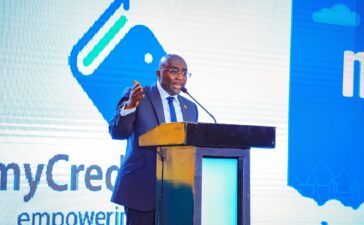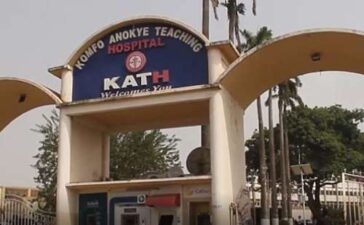The Minister of Education Dr. Yaw Osei Adutwum says the ministry intends to decentralize food supplies to the second-cycle institutions to help address the challenges of intermittent food shortages.
The ministry will therefore substitute menus for the schools with local foods to procure in their locality to feed the students.
“I want to make sure red red comes back to your schools. So we are going to look at how do we remove rice some number of days so that we can substitute that with plantain and substitute that with yam. Because it is season for Yam and I believe you can go and buy your own yam and feed your students. I am going to meet with the food committee to look at how those calculations are done so that red red will see itself back in your dining hall”
Dr Yaw Osei Adutwum added that the ministry in collaboration with the Ministry of Agriculture is also considering the introduction of school farming system to empower schools with arable lands to grow.
“We also get Schools that tell us they have arable land and if only we can support them with labourers they will be able to at least grow their own vegetables. We have written to the Ministry of Agric and we going to work with you on that. Places where you have lands and you can grow your own vegetables we will work with you to make sure that becomes a reality. When we are able to do that we are going to cut down on importation of canned tomato from China”
The Minister of Education said this Wednesday when addressing the opening of the 60th anniversary conference of CHASS in Koforidua on the theme “Sixty Years of Shaping Second Cycle Education in Ghana Challenges and Successes in Contemporary Times ; The Role of Stakeholders”
Dr. Yaw Osei Adutwum said government recognizes the challenges that exist in the educational sector which the ministry is working to fix the challenge.
He hastened to add that, the challenges, however, do not defeat the fact that there has been a significant improvement in the educational sector over the past years, saying there has been increase in enrollment from 800,000 to 1.3 million in senior high schools.
Adding that there has also been an improvement in the distribution of textbooks and infrastructure as well as about 50% of students are now passing the core subjects in WASSCE, an achievement he said, needs to be highlighted.
The Minister assured of payment of recurrent expenditure for Day schools in the shortest possible time and then later for the boarding schools.
Dr. Osei Adutwum hinted that a draft bill has been put before cabinet for approval then to Parliament to make SHS six years combining JHS education.
“Draft bill before Cabinet for approval and eventually Parliament, is making secondary education six years and not three. It doesn’t mean we are going to bring three more years to your campus. But what we are saying is this, we have a rare opportunity to amend the pre-tertiary education Act that says that JHS is part of Basic effective given our senior high schools three years. This was a nation that had seven years Secondary. Chemistry should begin from Junior high school -one”.
He said the “1998 education reform did great injustice to this country. When we said we don’t need six form anymore . It also meant we needed four years university education instead of three for most courses”.
The National President of CHASS, Alhaji Yakubu Abubakar reiterated the Position of the conference for the free SHS Policy to be reviewed after five years of implementation to address various challenges including funding, food supply, furniture, and infrastructure.
He emphasized that government has failed to release recurrent expenditure and some instances other funds making it difficult for heads of schools to undertake certain school activities, forcing schools to be run on borrowed monies and credit.
He said delayed payment of outstanding expenditure and outstanding arrears particularly to Day Senior High schools is making the running of the schools difficult since they have no other source of funding.
He further called on the government and management of the Ghana Education Service to look at the function of buffer stock in terms of the supply of foods to schools at the SHS level to address the intermittent food shortages.
The President of CHASS also urged government to allow heads of schools to actively participate in the procurement processes regarding furniture supply to schools and also said government should release recurrent funds to cater for day school students.
Alhaji Yakubu Abubakar further called on government to as a matter of urgency revert all schools from prepaid to postpaid to resolve electricity crises faced due to lack of funds to buy prepaid electricity credit.
CHASS also demanded release of the code of conduct by the Ministry of Education to help curb the growing indiscipline in the schools before the next academic year begins.
Two teacher unions -Ghana National Association of Teachers (GNAT) and National Association of Graduate Teachers (NAGRAT) warned GES that the era of intimidation is overstating that, Headmasters can never be intimidated anymore since government has failed to listen to review the free SHS policy to address challenges.
NAGRAT President Angel Carbonu accused the Ministry of Education of breaching the labour laws by not allowing Headmasters to go on leave.
He also asked government to address the double track problem since it has taken tow on the time period teachers had to spend in school hence the need for renegotiations because it has implications on conditions of service.
Source:starrfm.com.gh






